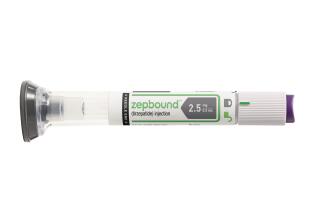FDA Approves Use of First Fat Substitute in Desserts
- Share via
WASHINGTON — In what is expected to be a boon for diet-conscious ice cream lovers and people worried about cholesterol, the Food and Drug Administration on Thursday approved the first low-calorie fat substitute for the U.S. market.
Simplesse, a combination of milk and egg-white proteins, was cleared only for use in frozen desserts. But it is likely to be the forerunner of a new generation of diet foods, including such typically high-fat products as salad dressings, sour cream, yogurt, margarine, butter, cheese, cheese spreads and mayonnaise.
The product, developed and manufactured by the NutraSweet Co., a subsidiary of Monsanto Co., is made by cooking and blending egg-white and milk protein into a creamy, rich fluid that has the texture and taste of fat but fewer calories and less cholesterol.
It will first appear in supermarkets nationwide in a new frozen dessert known as Simple Pleasures, sold in pints and distributed by Dreyer’s Grand Ice Cream, a national ice cream manufacturer and distributor.
NutraSweet said that a 4-ounce serving of Simple Pleasures strawberry frozen dairy dessert contains 120 calories and one gram of fat, compared to 250 calories and 15 grams for the same amount of a super premium brand of ice cream.
The first line of Simple Pleasures flavors will include chocolate, strawberry, rum raisin, coffee, peach and toffee crunch, the company said.
“It’s exciting to see the surprised smiles on people’s faces as they discover that the creamy, delicious frozen dessert they just tasted is fat-free and has half the calories of traditional ice creams,” said David L. Morley, group vice president and general manager of Simplesse Group, a division of NutraSweet.
NutraSweet said it intends to ask the FDA for permission to use Simplesse in mayonnaise, yogurt, salad dressing and other such normally fatty foods. Simplesse, however, cannot be used in cooked foods, such as cakes and pies, and individuals who are allergic to milk and egg products will probably be allergic to Simplesse as well. The FDA will require that the product be appropriately labeled.
The FDA said that agency approval will be required for use of the product in foods other than frozen desserts.
An FDA spokesman said the agency concluded that the process used to manufacture Simplesse, known as microparticulation, was safe and did not change the nutritional value of the product, and that Simplesse’s impact on total dietary protein was minimal.
Lisa Lefferts, a staff scientist at the Center for Science in the Public Interest, a public interest advocacy group that studies nutrition and food safety issues, said: “The good news is that it seems to be safe--and anything that’s safe and can help people eat less fat in their diet is a step in the right direction.”
However, she added: “It’s not a magic bullet. It doesn’t turn frozen desserts into health foods, only healthier foods. It’s not a substitute for an apple or broccoli.”
Mary Sefton, manager of new product development for Weight Watchers, one of the country’s largest diet self-help organizations and the manufacturer of its own line of weight-reduction products, said: “In keeping with the Weight Watchers philosophy of offering a wide variety of food choices, the availability of Simplesse opens the way for many low-fat and nonfat products, which will be helpful for weight control.
“In addition, it is something we will want to consider for our full line of Weight Watchers frozen foods and reduced calorie products.”
Quoting figures from the International Ice Cream Assn., the company said that more than 1.4-billion gallons of ice cream products were produced last year in the United States. In 1988, total sales reached $9 billion. Simple Pleasures “will be positioned as a healthful, great tasting alternative to these products,” the company said.
Simplesse has already been approved for marketing in West Germany, Great Britain, Switzerland, Japan, Belgium, the Netherlands and Luxembourg.
Several other manufacturers are developing competing fat substitutes. In 1987, Procter & Gamble Co. filed for FDA approval for Olestra, a sucrose polyester made by chemically linking several fatty acid molecules to a molecule of sucrose, or table sugar. Because of its structure, it is not metabolized by the body and, therefore, adds no fat, calories or cholesterol.
Procter & Gamble has applied to use it in shortenings and oils, where it would lower fat in fried foods and other cooked products. But an FDA spokesman said questions remain about the product’s safety.
RELATED STORY: D1
More to Read
Eat your way across L.A.
Get our weekly Tasting Notes newsletter for reviews, news and more.
You may occasionally receive promotional content from the Los Angeles Times.









